

Discover more from Israel from the Inside with Daniel Gordis
"What is unbelievable is that we let them do it. That they did it is not unbelievable at all."
The guy I mentioned in a previous post, who’d said to me in shul last Shabbat in the early morning when we’d first started hearing booms, “it’s probably just construction,” came up to me as he arrived in shul this morning. We kind of just stared at each other for a moment. What’s there really to say?
“Unbelievable,” I whispered.
“Well,” he replied without even a pause, “what is unbelievable is that we let them do it. That they did it is actually not unbelievable at all.”
Some fifty Jews, men and women, had taken refuge outside the ghetto, in the Anglo-Palestine Bank, which was managed by one of their own, the son of Rabbi Slonim. They were huddled in one room. The Arabs, the soldiers of the grand mufti, soon sniffed them out. It was Saturday, August 24, nine in the morning. After blowing open the door of the bank… But here’s the story in a nutshell: They cut off hands, they cut off fingers, they held heads over a stove, they gouged out eyes. A rabbi stood immobile, commending the souls of his Jews to God – they scalped him. They made off with his brains.
On Mrs. Sokolov’s lap, one after the other, they sat six students from the yeshiva and, with her still alive, slit their throats. They mutilated the men. They shoved thirteen-year-old girls, mothers and grandmothers into the blood and raped them in unison.
Mrs. X—— is lying in a Jerusalem hospital. They killed her husband at her feet, then slaughtered her child in her arms. “You, you will remain alive…,” the twentieth-century men told her.
That’s not a description of what happened this week. It’s an account, by Albert Londres (1884-1932), in his book, The Wandering Jew Has Arrived (p. 168), of the Hebron massacre in August 1929, almost one hundred years ago.
That massacre ended the Hebron community that had existed for hundreds of years. Did this week’s massacre end Be’eri and Kfar Azza and many others? It’s too early to know.
Who was “penned in” back then in Hebron, in 1929? Who was blockaded then? Who was under occupation then?
No one, that’s who.
Oh, and speaking of killing family in front of other members of the family and purposely keeping some alive, here’s a video for you (no gory images; “just” a heartbreaking scene):
That video, of course, is from this week. The parents know that their daughter has just been slaughtered and so do her siblings, but the parents have to hold it together so the remaining kids stay relatively calm, so the barbarian (who you hear telling them to “relax”) doesn’t kill more of them.
Think of the baby at the very top. Think of the dead sister in that house. Of these family members, who won’t be counted among the victims, who will never, ever, have a normal day of life.
Now think about about 1,200 cases of that. In two days.
We’ll come back to “two days.”
Let’s return to Hebron, a century ago. Before there was a state. When the Jewish community in Palestine was tiny. Londres shares another part of the account he heard from a victim (pp. 169-170):
“Then, on the twenty-ninth, we were all together at home. We hear knocking. My father goes to look out the window. He sees fifty Arabs. ‘What do you want, my friends?’ he asks them. “‘Come down! We want to kill you with your family.’
“My father knows nearly all of them. ‘What? You are my neighbors; I see many of my friends in your group. For twenty years we have shaken hands. My children played with your children.’
“‘Today we have to kill you!’
“My father shuts the window and, trusting the robustness of our door, withdraws with my mother, my two sisters, my little brother and me to a room on the first floor.
“Soon, blows of axes against the door. Then the sound of grinding: the door has given way. My father cries out, ‘Don’t move! I am going to speak to them again.’ He goes down. At the foot of the stairs, heading the invasion, is an Arab, his friend.
“My father holds out his arms and moves toward him to kiss him, saying, ‘You, at least, will not do me harm, nor to my family.’ The Arab draws a knife from his belt and, with one swoop, slashes my father’s head. I was following behind – I couldn’t restrain myself. I broke a chair over the head of our friend.
“My father collapsed. The Arab bent down and stabbed him eleven times with his dagger. Afterwards, he looked at him, took him for dead and left to join the others who were pillaging in the adjoining room.”
“And then?”
“After pillaging, they set the house on fire. I got my mother, my sisters and my little brother out of the cupboard where they had taken refuge. We were about to drag my father from the fire, when the raging bulls returned. Seeing the blood on the stairs, they said, ‘The others slit his throat, let’s find his body.’”
If there was no blockade and no occupation and not even a conflict yet (this was what began it, according to many historians), what led to this? Why the torture? The killing? The maiming? The rapes?
A rumor that Jews were going to construct something at the Western Wall. I write about this more in my Israel: A Concise History of a Nation Reborn, at the end of Chapter Five.
\
Later this week, we’ll return to history and Gaza, and to an event in 1956 (not the war) that led to the writing of Israel’s most famous eulogy. We’ll look at that eulogy and see how it reflects what had happened in 1929, and horribly foreshadows what would happen in 2023.
Towards the book’s conclusion, Londres recalls a conversation he had with Ragheb Bey al-Nashashibi, the Arab mayor of Jerusalem. The mayor assured Londres that once the British departed Palestine, the Arabs would get rid of the Jews. Londres responded:
“You can’t kill all the Jews. They number one hundred fifty thousand. It would take too long!”
“No,” he said in a very soft voice. “Just two days!”
“Seventy-five thousand per day?”
“No problem!”
Ragheb Bey al-Nashashibi wasn’t kidding. They were patient, and last Shabbat and a week ago today, they got much closer than they ever had before.
On Friday morning, I’d never heard of Londres’ book. Our Shabbat dinner hosts mentioned it, and lent us their copy. I spent most of Shabbat on our terrace, reading it. Londres wasn’t Jewish, and though he was fascinated by Judaism and the Jewish return to Zion, he was by no means uncritical. He’s got biting critiques of how the Jews were comporting themselves upon their return to Zion.
It is, I confess, a bit surreal to sit on the terrace, a gentle breeze making Jerusalem just perfect, when you know your kids and 360,000 reservists are off at war. But what are you supposed to do?
So you read, and try to think of something else. Not so easy, though. Throughout the afternoon, there were enormous booms from the west (turns out it was shelling of the coastal region, and the sound carries), and the intermittent screech of jet-fighters in the sky passing us from the north, heading south.
We have a photo that my father took when I was just a few months old, of my great-grandmother holding me. It’s on the wall in my study, not far from my desk, so I sort of see it all the time. But obviously, I don’t usually pay it much attention. There’s been a copy of that photo in every house I’ve ever lived in.
Today, though, the photo gave me pause. My great-grandmother fled the Ukraine to escape pogroms, and eventually made her way to America. By the time this picture was taken, there was a State of Israel. Her grandchildren were PhD’s and MD’s and all that—she’d fled, and the family was safe.
Would she have imagined that this many years later, with the State of Israel so much more powerful than it was then, that her great-grandchild would one day live in a place where exactly what she had fled would happen again—only worse? That when the Jews finally had the ability to defend themselves and each other, they failed—and miserably so?
No, it should be unbelievable, but it’s really not.
Not if we’re honest about history, not if we’re honest about what’s been happening here for 100 years. We should have known. But we wanted to believe otherwise. And now, more than a thousand are dead, and perhaps even worse, the captives … one can’t even begin to imagine.
So I’ll close with one final passage from Londres (p. 183), almost at the very end):
Life in Paris and London? It is certainly more beautiful than life in Palestine. But is it more beautiful than their dream?
And the massacres?
Yes, they would have represented a major challenge for a people used to peace. But for them…
When, on the first night, Adam saw the sun set, he cried. The day had been so beautiful! But on the next day, the sun reappeared and joy returned to the heart of the first man. And when the sun disappeared again, he sang. Adam understood that this is how it would always be. He stopped despairing and said, “Let us live!”
Live, then, Jews! From massacre to massacre…
This is truly a memorable book. It’s short, but don’t make it a quick read. You need to let the language waft in, and land. Londres is truly poetic. His biographer described him as “a poet of immediate history.”
Albert Londres, The Wandering Jew Has Arrived , translated from the French (Geffen Press, 2017.)
To chronicle some of the horrors that transpired last week, the Israeli government has put up a website with a good deal of video and photo evidence. It’s very well done, and is worth a look.
https://govextra.gov.il/mda/israel-under-attack/israel-under-attack/
If you read Friday’s post, you may recall the comment about the dogs—those that are traumatized and the one that the couple was trying to find. Here’s a photo from this weekend’s Yedi’ot Achronot.
Impossible Takes Longer is now available on Amazon and Barnes & Noble and at other booksellers.
Our Twitter feed is here; feel free to join there, too.
Our Threads feed is danielgordis. We’ll start to use it more shortly.
Subscribe to Israel from the Inside with Daniel Gordis
Israel from the Inside is for people who want to understand Israel with nuance, who believe that Israel is neither hopelessly flawed and illegitimate, nor beyond critique. If thoughtful analysis of Israel and its people interests you, welcome!


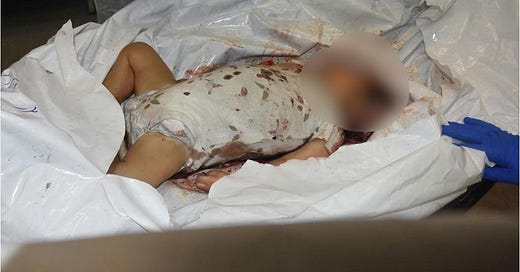






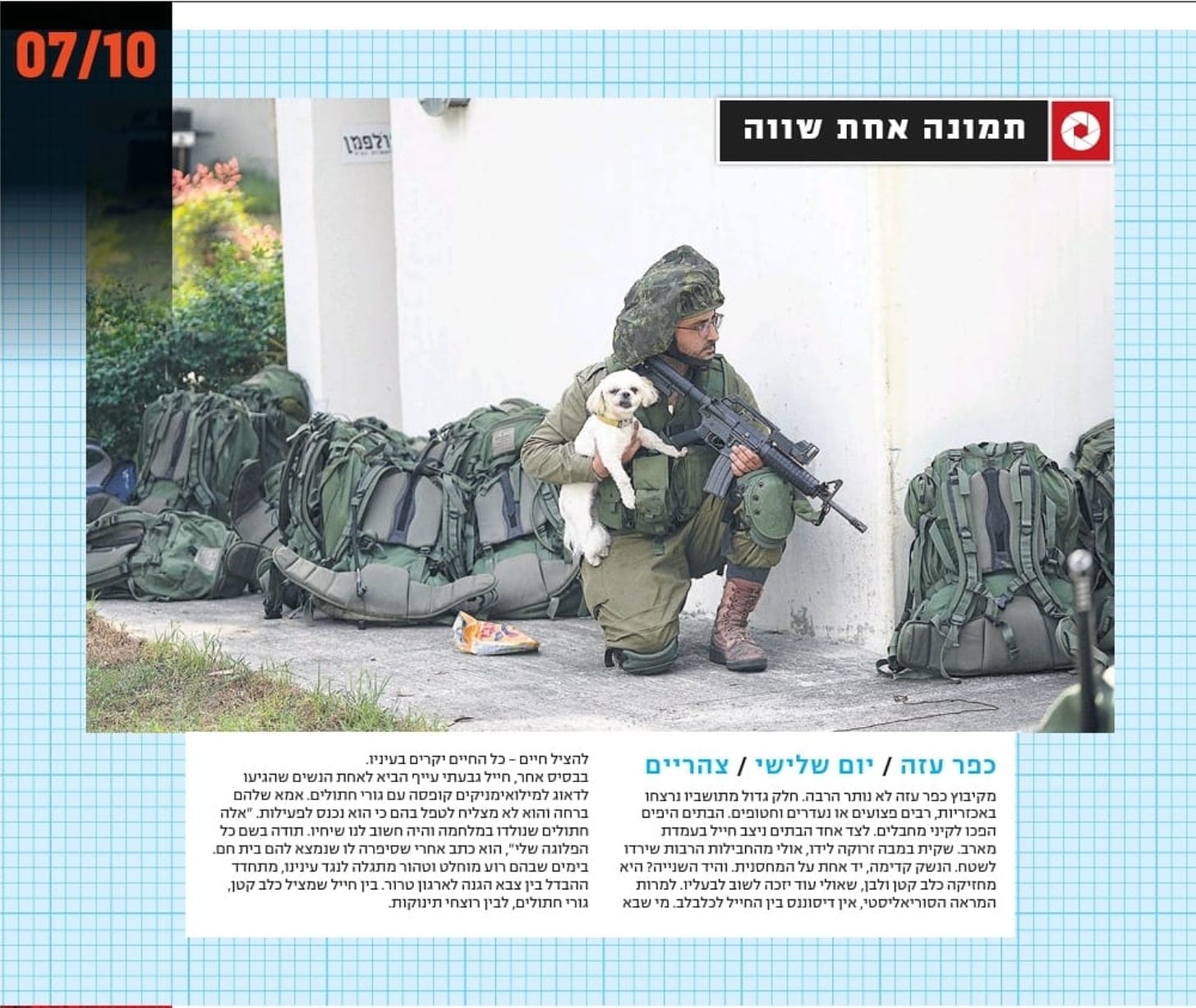
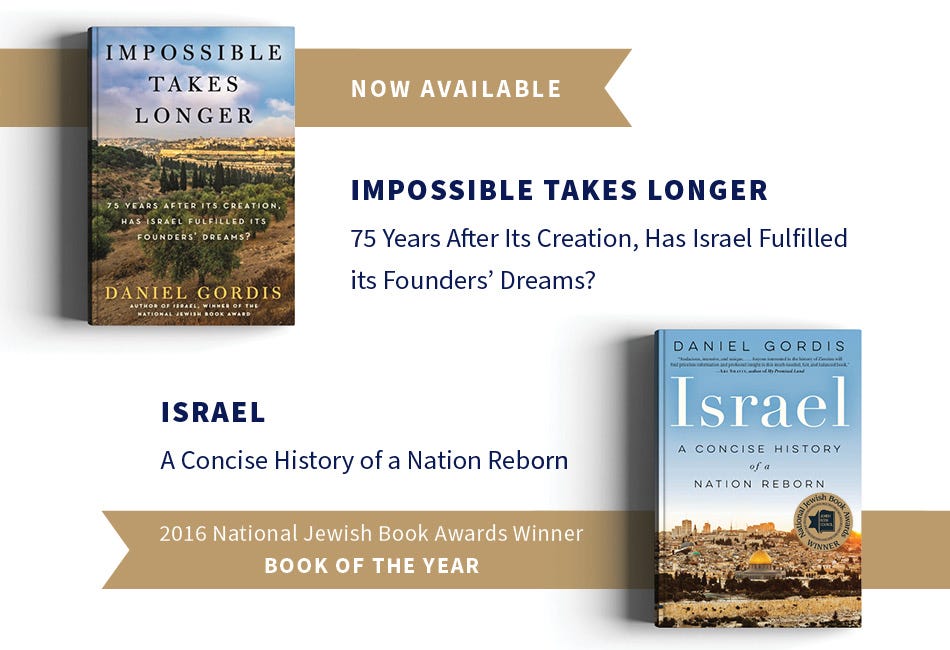







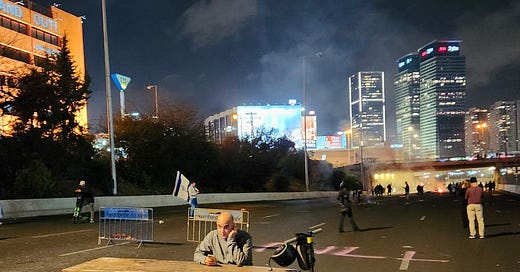

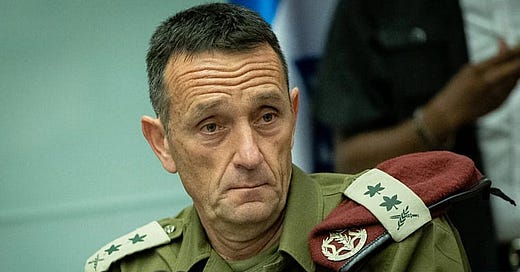



Danny, one thing I’ve noticed in some of the reports, especially from one girl who survived by sitting quiet in a bush for hours, is the incredible “energy” mentioned of the terrorists. Based on this outrageous bloody and heartless rampage that went on and on, I am wondering what all these terrorist were high on. I think there is something they are all taking to make them into such heartless, sick attackers (much more wound up on more than just their sick training and corrupt values and their hate) . I don’t know much, but it could be something other than speed …maybe like meth. Maybe there’s a way to find out what this is and find out if any of those medical supplies Israel used to let through are that drug. And stop it in future.
I may not be articulating this very well, but I think that is worth looking into. I am over here in Ohio and I don’t really know whom to share this idea with or what it helps- I think this drug makes them feel super powerful, certainly more than a strong coffee or say Red Bull energy drink. Details I know, but still.
Julie Saar
בלתי נתפס, בלתי נסבל
יהי זכרם ברוך